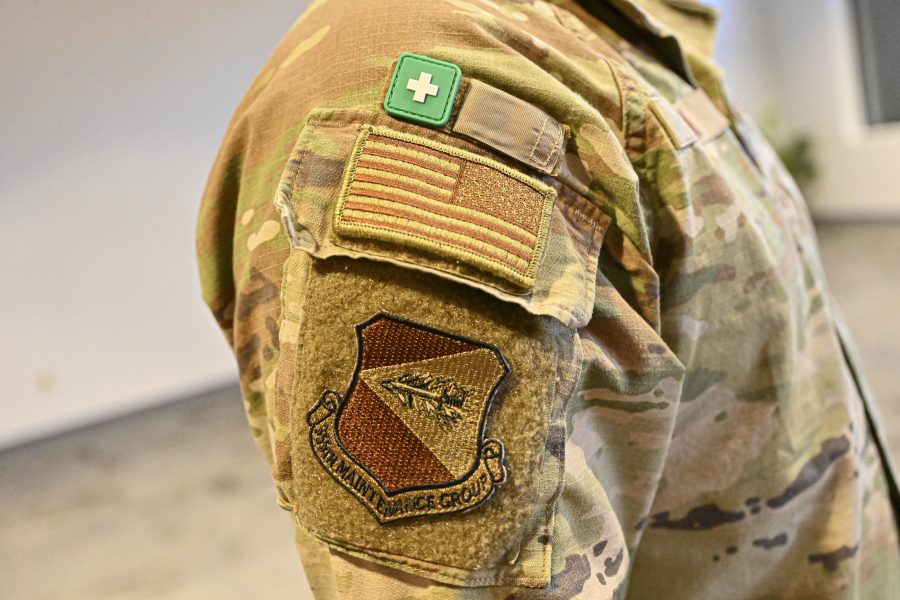The total number and rate of Airmen who died by suicide jumped in 2022 compared to 2021, though both figures are still below the high rates the service saw in the years prior, according to the Defense Department’s annual Report on Suicide in the Military released Oct. 26.
All told, the Active-Duty Air Force tracked 64 deaths by suicide in 2022, for a rate of 19.7 per 100,000 Airmen. That’s compared to 51 total and a rate of 15.3 in 2021. All told, the Air Force had the lowest recorded Active-Duty suicide rate among the services.
By comparison, the Air Force had 81 suicides in 2020 and 82 in 2019, both times second most among the services. The rates in those years were above 24 per 100,000 service members.
The Space Force, for the first time, recorded its own data separate from the Air Force—no Guardians died by suicide. The Air Force Reserve saw an increase in total numbers from six to 14, while the Air National Guard had the same number as 2021—15.
Across the entire DOD, there were 331 suicides among Active-Duty service members, 64 in the Reserve, and 97 in the Guard—492 total. The rate among the Active-Duty declined slightly, although the overall trend since 2011 remains upward. The Guard and Reserve are also slightly down year-over-year, but their trends are more mixed and the report notes lower statistical significance in their findings.
The rate of military suicides remains comparable to the general public. Young, enlisted men continue to be the most at-risk for suicide.
“Even one suicide is too many,” Defense Secretary Lloyd J. Austin III said in a statement. “We have much more work to do to reduce suicide across our force, and owe it to our service members and our military families to provide the best possible care; to identify risk factors and spot warning signs; and to eliminate the tired old stigmas around seeking help.”
In March, Austin announced new steps in a multiphase plan to improve mental health and suicide prevention in the military, outlining 10 steps the Pentagon would take at the recommendation of an independent review committee. In September, he followed that up with a broader plan to implement dozens more of those recommendations, broken down across five lines of effort:
- Foster a Supportive Environment
- Improve the Delivery of Mental Health Care
- Address Stigma and Other Barriers to Care
- Revise Suicide Prevention Training
- Promote a Culture of Lethal Means Safety
However, Austin declined to take action on some recommendations, several related to more closely regulating firearm purchases by service members on DOD property and others aimed at quality-of-life issues like housing.
While the DOD works on some issues, the Air Force is also taking steps. On Aug. 30, Chief Master Sergeant of the Air Force JoAnne S. Bass highlighted efforts such as centralizing support services, making resiliency training part of the leadership development program, and establishing “integrated wellness teams” at bases.
Bass also promised that more efforts would be revealed soon. She helps lead the Department of the Air Force’s “Fortify the Force” initiative, a team of 50-60 leaders and experts tackling barriers to Airmen and Guardians seeking help with mental health, wellness, and resilience. The panel has received more than 300 suggestions so far.
The department is also seeking to better understand the suicides that do take place to inform their efforts. Through a first-of-its-kind suicide analysis board, the DAF is partnering with researchers to pull information from personnel records, investigation reports, medical records, and Department of Defense Suicide Event Reports (DoDSER) and compile over 1,000 data points for each person who died by suicide. That report was due this spring, though the results were not publicly released.
Service members and veterans who are in crisis or having thoughts of suicide, and those who know a service member or veteran in crisis, can call the Veterans/Military Crisis Line for confidential support available 24 hours a day, seven days a week, 365 days a year. Call 988 and press 1; text 988; or chat online at VeteransCrisisLine.net/Chat.
